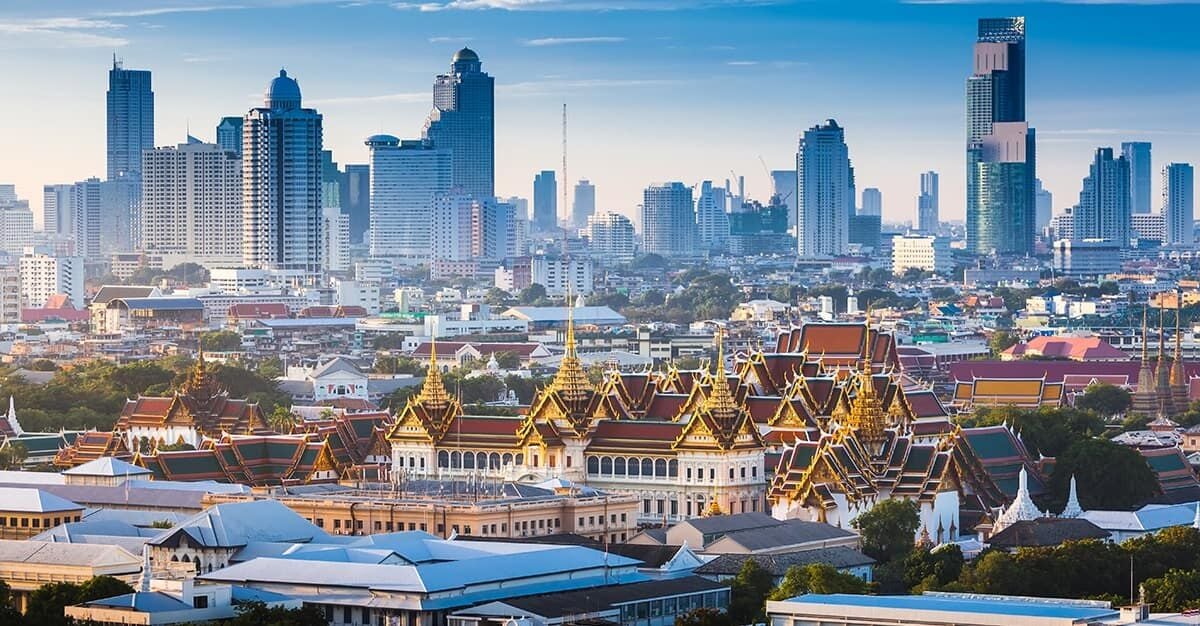Thailand’s economy feels the squeeze as Q3 wraps up

Thailand’s economy is under severe strain, grappling with both internal and external pressures as the end of the third quarter looms. The kingdom is fighting to stabilise its financial footing while China, a vital trading partner, wrestles with its economic troubles. The Thai baht took a hit earlier this month, mirroring the ongoing turmoil in the world’s second-largest economy.
The National Economic and Social Development Council is forecasting Thai growth of between 2.3% and 2.8% for the year, with an average of 2.5%. This is an improvement from the 1.9% growth seen in the first half of 2024. Despite this, uncertainty clouds the outlook for tourism, domestic spending, and exports, largely due to Thailand’s economic entanglements with China.
Nonarit Bisonyabut, a research fellow at the Thai Development Research Institute, has warned of serious risks, especially from the ongoing US-China tensions.
“There are growing worries about whether the global economy will underperform, with key uncertainties linked to the US economy. The Federal Reserve might cut interest rates to boost the economy, but the situation remains uncertain. Will it be a soft or hard landing?”
Nonarit also pointed to China’s mounting issues, including soaring debt and a problematic real estate sector. Despite these challenges, China has yet to roll out new policies to tackle them, and the government remains optimistic about minimal state intervention.
Looking ahead to the US presidential election, Nonarit believes that the trade war with China will persist regardless of whether Donald Trump or Kamala Harris emerges victorious, continuing to disrupt the global economy. Both the US and China are crucial to Thailand’s economy, though Thailand’s ties with China are particularly strong.
Vayupak Fund
For the remainder of 2024, Nonarit highlights the Thai government’s stimulus policies as key economic drivers. These include a 122 billion baht digital wallet project and the introduction of new Vayupak Fund units estimated at 150 billion baht. If the new government, led by Paetongtarn Shinawatra, successfully manages these policies, it could restore confidence in the Thai economy.
He has raised his growth forecast to 2.6% for the year, up from 2.5%, factoring in the potential benefits of the digital wallet scheme. Despite the economic slowdown in China, the final quarter should see a boost in Thai exports thanks to festive demand, according to the Employers’ Confederation of Thai Trade and Industry (EconThai), said Tanit Sorat, EconThai’s Vice-Chairman.
“The Christmas and New Year period typically drives up demand, which should bolster our export sector.”
Orders have been placed earlier than usual this year as manufacturers gear up for end-of-year shipments, with many navigating longer routes due to conflicts in the Middle East and the Red Sea.
However, Thai exporters are also facing challenges, with lower sales volumes to China. Exports from 13 key industries, including cars and rubber, have been hit hard. China’s economy is still struggling to recover, with youth unemployment hitting 17% in July.
Chaichan Chareonsuk, Chairman of the Thai National Shippers’ Council, noted that export growth to China over the past seven months has been a mere 0.3% year-on-year, compared to 13.3% growth to the US. China remains Thailand’s second-largest trading partner, holding a 12% share.
Thai exports
China’s manufacturing sector is also struggling, with the purchasing managers’ index dropping to 49 in August, marking the fourth consecutive month of contraction. This has impacted key Thai exports to China, including fruit and auto tyres.
Despite these hurdles, Thai exports to India have surged by 42% year-on-year over the past seven months. Thai businesses are advised to adapt to global market shifts and explore new trade and investment opportunities in regions like India, the Middle East, and Africa.
Tourism remains a bright spot, with the Tourism Authority of Thailand forecasting 2.03 million Chinese visitors in the third quarter, making China the top source of inbound tourists. However, arrivals for the year are unlikely to match the 10 million seen in 2019 due to a sluggish Chinese economy.
As of September 1, Thailand has welcomed 4.9 million Chinese tourists in 2024, predominantly independent travellers from major cities like Shanghai. Karelle Lamouche of Accor noted an increase in these independent travellers, partly thanks to the visa-free scheme between Thailand and China.
Stock market experts are hoping the new Vayupak Fund and digital wallet scheme will stimulate domestic consumption and bolster the capital market. Tisco Research anticipates the Vayupak Fund will raise 100-150 billion baht, with the success of this effort hinging on the guaranteed returns offered.
Chaiyaporn Nompitakcharoen of Bualuang Securities stressed that establishing new Vayupak Fund units is crucial for attracting institutional and long-term investors, which would provide a much-needed boost to the Thai stock market.
Thai growth
The digital wallet scheme is expected to lift GDP by 0.3 percentage points, though steady growth will require additional measures. Kris Chantanotoke of Siam Commercial Bank urged the new government to outline clear economic policies to restore public and business confidence.
Somprawin Manprasert from SCB’s Economic Intelligence Center predicts Thai growth will slow in the second half of the year, with the GDP growth rate potentially falling below 1%. He calls for a comprehensive economic package to support growth as the new year approaches.
Amonthep Chawla of CIMB Thai Bank expects the final quarter of the year to show minimal growth quarter-on-quarter but strong year-on-year growth of around 4%, thanks to base effects, reported Bangkok Post.
Latest Thailand News
Follow The Thaiger on Google News:


























